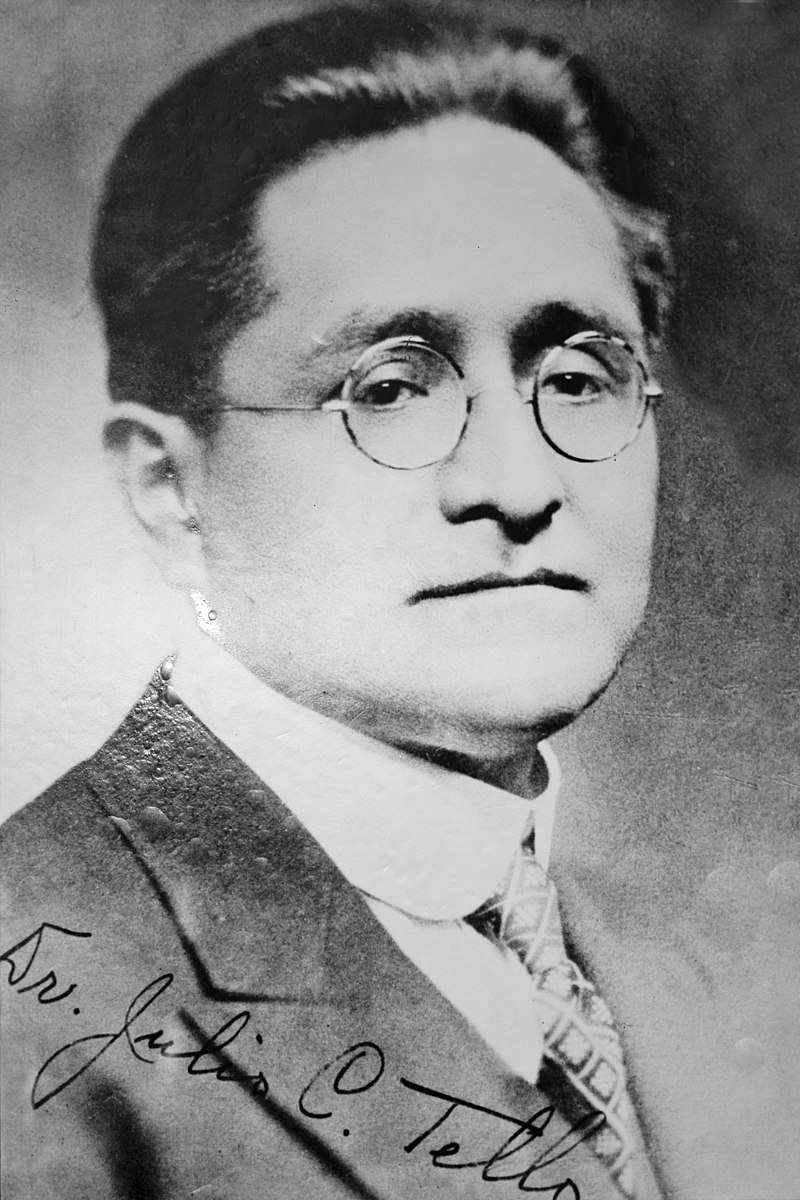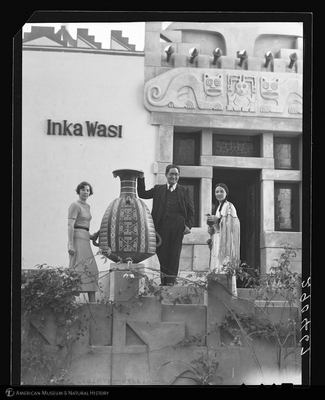Thinking much about Julio César Tello this week. In 1909 he enrolled at Harvard to study anthropology. I think he was Harvard's first Peruvian student. He graduated with a Master's in 1911. (This is apparently his graduation portrait.) 1/
Tello was from the mountains west of Lima, from Huarochirí. For daring to study medicine, he faced discrimination in Lima. In letters home from Cambridge he writes of finding a community of 'latinos'. (His word.) He is proud of his Harvard education ... 2/
Even if when he tried to collaborate with scholars at Harvard (and Yale, like Hiram Bingham), he is treated more as a local informant than a scholar in his right. And he was a scholar. He founded Peru's first three anthropology museums ... 3/
even as colleagues in Peru dismissed him as an 'Indio' too beholden to North American academia. But this fueled him. 'Soy Indio,' Tello defiantly began his lectures: 'I am Indian' -- a stance resting on his experience of two countries' worth of racialization ... 4/
But also his consciousness raising as both a proud Latino and -- in his defiant words -- an 'Indio' who commanded the scholarship of both the United States and Peru. 5/
Tello would have succeeded without Harvard. He was brilliant. He was driven. But he would not have succeeded in the same way and could have very well faced a glass ceiling in Lima (the same that most Native North American people in the U.S. confronted). 6/
By attending a U.S. university Tello could skip levels. He mastered new languages and disciplines, gaining the cultural capital to return to Peru and deploy his learning and networks to insist on an Indigenous Andean foundation for Peruvian history. 7/
Tello was also very complicated. How did he have academic capital to spend once he arrived in the U.S.? Because he came having already made a massive collection of pre-Hispanic skulls ... that he used to advance his anti-racist scholarship. He was proudly nationalist ... 8/
Even as he was accused of being a stalking horse for what we'd now call U.S. cultural imperialism. (But see my book on Machu Picchu, where I show that Tello and Daniel Alomía Robles (the composer of El Condor Pasa) likely reported Hiram Bingham and Yale for smuggling) 9/
My point is that U.S. academia, even as it _must_ be fixed, has been used in ways that its founders never expected. It became a place where scholars from around the world (and in the U.S.) have empowered themselves and built alliances to change both the U.S. and their homes. 10/
U.S. academia is _not_ exceptional in this sense. The same might be said of other institutions in other countries that have been repurposed to decolonizing ends. But as ICE targets international students like Tello, often the best of all of us, it falls on us to defend them. 11/
Harvard and MIT's swiftness in suing the federal government for its recent move is heartening. I'm also happy to see that @penn_state is joining an amicus brief. What can historians do, on top of pushing their institutions to do likewise? 12/
We can write stories of folks like Tello, who bely the racist, nationalist, jingoist understanding of 'American' history that takes Mount Rushmore as a sigil, and not Chavín de Huantar, or Standing Rock, as meeting places for something sharper, more connective. 13/

 Read on Twitter
Read on Twitter



